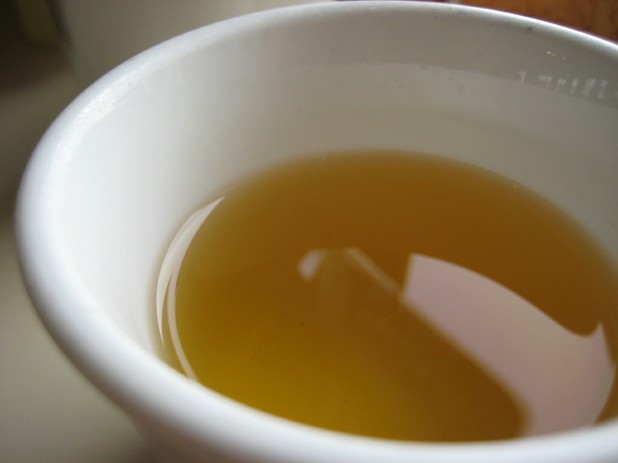- Story Highlights
-
- Dementia: Drinking plain green tea helps protect the brain against beta amyloid and hydrogen peroxide, known triggers for dementia.
Forgetful? How Bout’ a Cup of Green Tea – It May Protect the Brain From Dementia
Comments (1)Researchers have long known that a healthy diet, exercise and mental stimulation into older age all protect the brain from dementia and Alzheimer’s, and now based on the results of some research coming out of Newcastle University in the UK – they may have to add the regular consumption of green tea to that list of protective factors.
Dementia-like diseases are caused in part by cell death in areas responsible for memory formation and storage. Previous research has shown that compounds in green tea may help to delay or prevent dementia and Alzheimer’s onset by inhibiting the activity of known Alzheimer’s triggers, beta amyloid and hydrogen peroxide.
Previous research, however, has only studied the efficacy against dementia of concentrated solutions of certain compounds found in green tea – and what scientists didn’t yet know, was if normal consumption (drinking cups of tea) had similar protective effects.
Led by researcher Edward Okello, scientists at Newcastle University in the UK set out to find out whether or not plain tea drinking would work as well as medications derived from compounds in green tea.
The results
Drinking the tea works!
The researchers fed green tea through a laboratory simulated human digestive system and found that the properties in green tea that protect against Alzheimer’s do survive the digestive process.
As a peripheral benefit, the compounds found in digested green tea were also found to protect healthy cells from fast growing cancer tumors, and at high concentrations, to actually kill cancer cells.
Commenting on the significance of the dementia protective results, Okello said, "Our theory is that if you can prevent the initial triggers, you can potentially prevent the onset of dementia. Or with greater consumption, you could slow down progression."
He’s quick to note that other factors, like exercise and diet play a huge role in protecting the mind, but still prescribes adding tea to a daily routine, saying, "I think it's fair to say that at least one cup of green tea every day may be good for you and I would certainly recommend it."
Read the full study results in the journal, Phytomedicine


